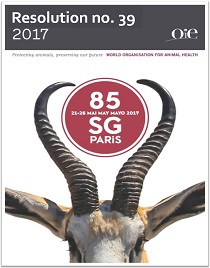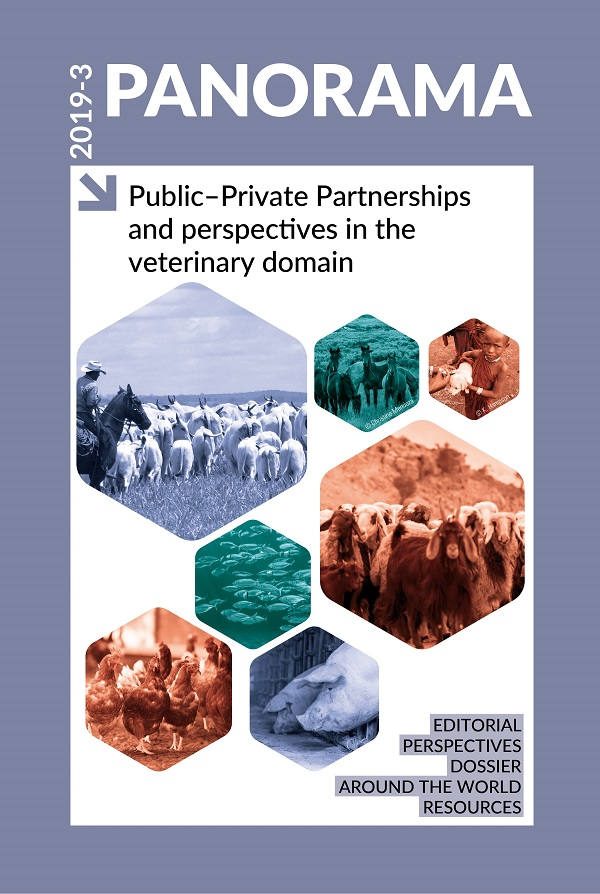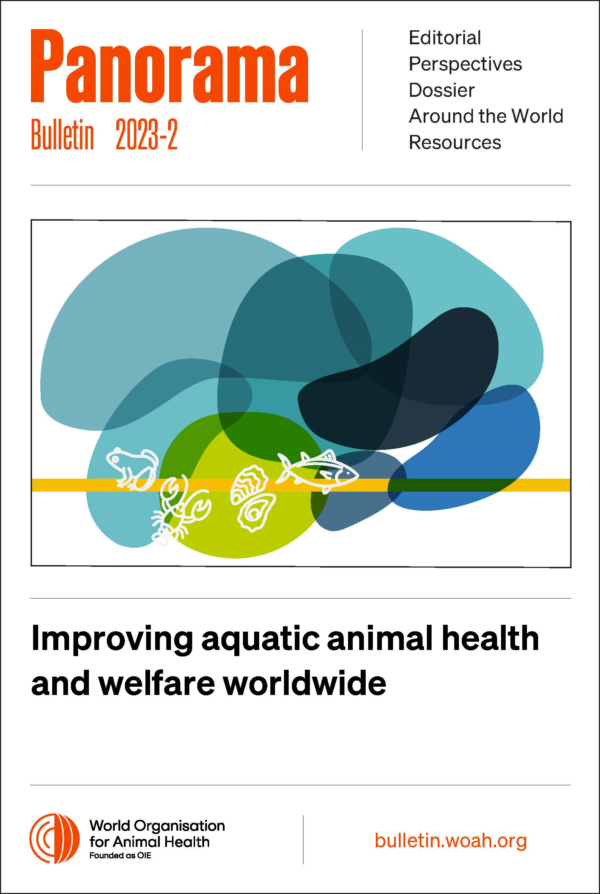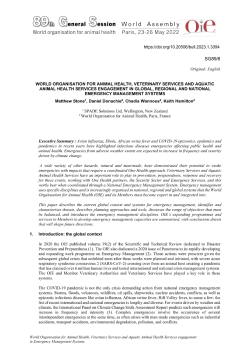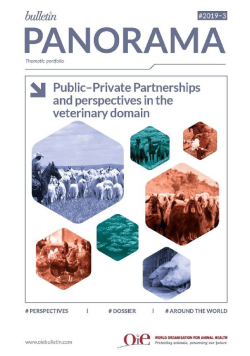Keywords
Public–Private Partnerships: expectations of private sector partners for international animal health and livestock development programmes and the implications for the OIE
CONSIDERING
- The critical role the animal health and livestock sectors play in contributing to the achievement of the United Nations Sustainable Development Goals (SDGs),
- That the engagement of private sector entities, including corporations, small and medium enterprises (SMEs), private foundations and philanthropists, can accelerate progress towards the accomplishment of the SDGs,
- That Public-Private Partnerships (PPPs) provide an optimal mix of the unique strengths of both the public and private sectors and can often accomplish much more than the most determined effort by any one operating alone,
- That PPPs are a recognised mechanism for sourcing and engaging complementary resources, expertise and capabilities and offer substantial opportunities in meeting the SDGs as well as other national specific priorities,
- That the private sector is keen to complement the efforts of national Veterinary Authorities, provided that there is a clear delegation of responsibilities, transparent governance, functional regulatory framework, consistent application of rules, regular review and clear exit arrangements,
- That private sector partners require clear objectives and measureable impacts be defined prior to engaging in PPPs and although these may differ from the public sector, the results of the PPP will be of mutual benefit and create a win-win situation,
- That internationally agreed animal health and welfare standards continue to apply in all aspects of PPPs, and that the OIE Terrestrial Animal Health Code glossary definition of Veterinary Services includes both the governmental and non-governmental organisations that implement animal health and welfare measures, thus recognising private sector organisations, veterinarians and veterinary para-professionals as vital contributors to national Veterinary Services,
- That PPP arrangements should and often do reflect the OIE Strategic Plan with an emphasis on diversity, inclusiveness, transparency and engagement, and also acknowledge the Tripartite approach,
- That the OIE assesses the capacity of Veterinary Authorities to interact with interested stakeholders through the Performance of Veterinary Services (PVS) Pathway,
- That the Bill & Melinda Gates Foundation, as a private partner, thus has specific objectives for its investments which must align with the Foundation’s vision to help reduce inequity,
- That, in October 2016, the OIE signed a three-year collaboration with the Bill & Melinda Gates Foundation entitled Public Private Progress to study the impact of PPPs in improving Veterinary Service delivery in Africa and Asia, and, as such, has started garnering positive experiences with PPPs at the global level,
THE ASSEMBLY RECOMMENDS THAT
- The OIE develop a global resource mobilisation strategy targeting private investors, and engage with them in order to stimulate investments in international/regional/national animal health and livestock sector development programmes in collaboration with relevant partners,
- The OIE and the Bill & Melinda Gates Foundation, in the framework of their collaboration, use the results of the Public Private Progress initiative to demonstrate the positive impacts of PPPs and disseminate best practices to support OIE Member Countries in developing successful and sustainable PPPs in the field of animal health and livestock sector development,
- In recognition of the fact that the growth of the private sector often outpaces that of Veterinary Authorities, the required resources be allocated to Veterinary Authorities to create enabling environments for PPPs,
- The Member Countries encourage and facilitate the organisation of producer (commodity or industry) groups that can serve as partners with the public sector as a prelude to developing the enabling environments for the Veterinary Authority to support the development of the livestock sector through expanded production and trade,
- The Member Countries take stock of the best practices identified by the OIE and promote, develop and implement policies and legislation to incentivise collaborations with the private sector to improve animal health and livestock sector development,
- OIE Member Countries make every effort to appropriately manage any perception of conflict of interest arising from any PPPs,
- When developing PPPs, Member Countries ensure that such arrangements also contribute to existing global efforts for the control of animal diseases such as Peste des Petits Ruminants (PPR), Foot and Mouth Disease (FMD), rabies or avian influenza,
- Where relevant, Member Countries are encouraged to request a PVS Evaluation Follow-Up mission to monitor country progress in complying with OIE standards including their capacity to interact with interested stakeholders, as assessed in fundamental component III.
AND INVITES
The Bill & Melinda Gates Foundation and other investors to take action, in collaboration with the OIE, and continue to advocate and support the development of suitable private sector partners with which national Veterinary Authorities can engage to create an enabling environment for PPPs targeting the development of the livestock sector and contributing to the achievement of the SDGs.
______________
(Adopted by the World Assembly of Delegates of the OIE on 25 May 2017
(in view of an entry into force on 26 May 2017)




